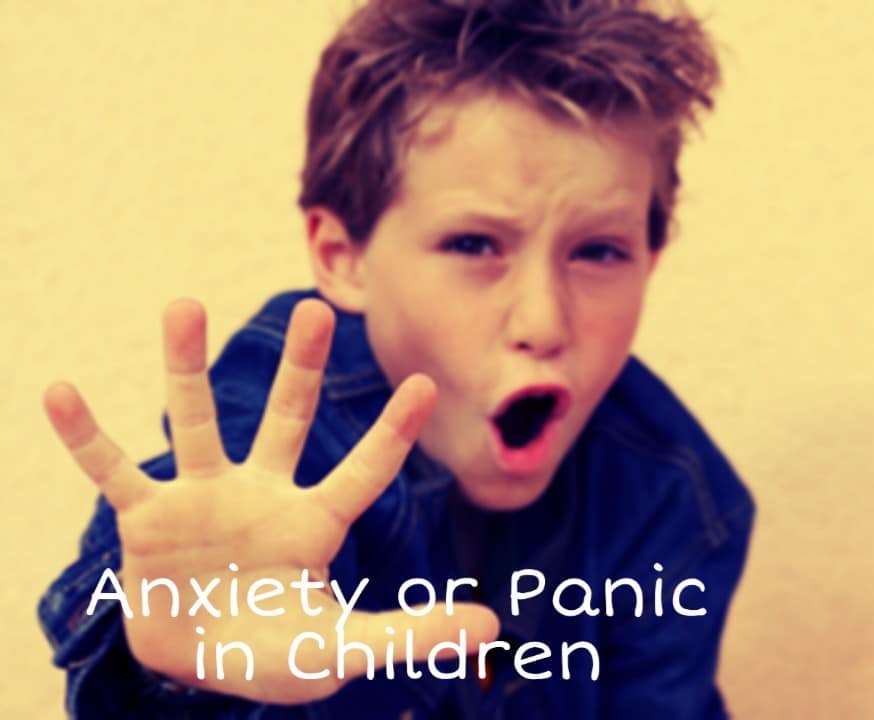
Contents [show]
As an adult, every child is sometimes anxious for some reason and feels nervous. But in some children, anxiety or panic can have such an effect that their heart does not focus on what they usually feel happy about.
But the latest research by UK-based Reading University professor Kathy Creswell has revealed that there are recipes or recipes that parents can use to reduce this inconvenience in children.
Professor Creswell, who is the author of several books on controlling ‘incentive’ in children, has set up some research-based recipes that parents can use for their children.
Read Also: Morning Water Therapy: Drinking Water On Empty Stomach
– Don’t say ‘Don’t panic, this will happen’

Children between the ages of four and eight feel nervous about spirits, jinn or demons or animals.
While older children may be in danger of realistic but very minor injuries, such as murder, terrorism, or nuclear war.
It does not matter how old your child is, it does not rule out his fears or anxieties. Just telling a child that what he or she fears is not right, is not going to happen or that the child is stupid does not solve the problem. Instead, acknowledge that the fear the child is feeling is correct.
Do not overlook the fear or panic of children
It should not be said to the children that the fear they are feeling will never happen, it does not benefit the child, but if the feeling of fear is properly acknowledged, it will help the child.
Read Also: Five food groups – Healthy food for school-age kids
Do not adjust your children’s life to their concerns. This will deprive your child of the opportunity to learn for himself
If your child is scared of dogs and you change your way of keeping a baby safe by looking at a dog in the street. You will in one way send a message to the child that his or her fear is right. But that doesn’t mean you have to force your child to confront what he or she is most afraid of. Instead, help them gradually learn to overcome this fear.
If the baby’s aggression is becoming a bigger problem then look carefully at what happens when she is more upset.
The idea behind this recipe is to help parents understand the fears of their children, rather than ask them if you are not feeling scared.
Read Also: Best Foods that Prevent Cancer: Anti Cancer Foods
Ask children openly
Parents have great desire and love to let their child know the solution. But instead, it is best to listen to your child and try to understand what he or she is expressing without fear, anxiety, or panic which may lead to envy. This fear may be due to misunderstanding.
‘When I was a kid myself, I was scared to travel on high-speed trains. When I saw a high-speed train passing by, it passed in front of me making a lot of noise. At that time, I felt that people standing outside the train felt the same way as people standing outside the speeding train. Unless you understand what your child’s fear is, you will not be able to help him.
Instead of telling your child that his or her fear is unreasonable, ask them questions that they feel might be the cause of their anxiety or panic.
For example, ask your child what has happened to him in the past that makes him think that his fear may turn into reality. Whether the child is afraid of what he or she may be or is afraid of, a variety of questions will be gradual and subjective. First, ask simple questions and then ask how such issues can be dealt with.
Read Also: High Blood Pressure at age 30 to 40 is dangerous for mental health
Encourage your child to develop a mentally sound strategy to overcome his fears or anxieties.
If there is a scary scene while watching a play or movie, ask your child what kind of bad thing or accident could happen to that danger (they forget all the dialogue in that scene, cry, and others The audience laughs at them).
Then you might as well ask them what might be the best thing in the scene (given that their acting was so good that it allowed one to star in a Hollywood movie). The child will likely find himself somewhere between these two extremes.
Read Also: Why I feel so tired all the time? Causes and Cures
Plan for parents to test the gradual change in their child’s fears
A pair of parents affiliated with Reading University were taught to teach their child ten steps in how to deal with what they were afraid of. Talking this way will build confidence in the child.
Appreciate your child for taking action and rewarding each success
In this way, parents will be appreciating the child’s efforts and encouraging them to cope with complex situations.
Read Also: Health Benefits Of Raw Garlic Eating On Empty Stomach
Sometimes it is normal to be anxious or nervous, but if their nervousness bothers them enough that they are unable to do the day-to-day work, then it is better to consult.
You can read those books in which there is a better strategy, outlined for these problems. you can consult with your doctor. And if you feel necessary, ask your doctor about ‘cognitive-behavioral therapy.
One thing to keep in mind is that you can not eliminate every kind of fear or panic in your child’s life.
Your main goal is to build the child’s ability to cope with life’s uncertainties, rather than eliminate the ability to feel fear.
The ability to organize and integrate your emotions and emotions is just another name for learning. When we reach puberty, then we have better learned the ability to understand matters according to their context and have understood. How we can deal with our problems.
You May Like Also




